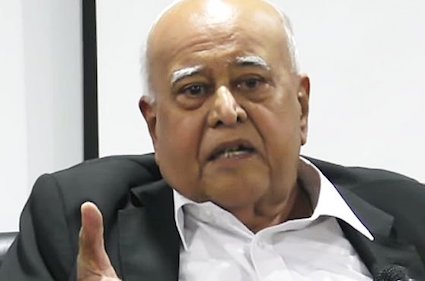Removal of royal assent made king a rubber stamp, lawyer tells court on NSC Act

(FMT) – A lawyer told the Federal Court here today that the National Security Council (NSC) Act is unconstitutional as it has reduced the role of the Yang di-Pertuan Agong from that of a constitutional monarch to being merely a rubber stamp.
Gopal Sri Ram said royal assent is an executive act performed by the king, the dispensation of which cuts across the basic constitutional function of the monarch.
The former Federal Court judge also said the NSC Act had become law pursuant to an unconstitutional amendment, thereby making it inconsistent with the constitution.
“It is submitted that any law, including one amending the constitution, is invalid if it violates the basic structure of the constitution,” he said when submitting a constitutional reference brought by PKR president Anwar Ibrahim to challenge the legality of the act.
The NSC Act was passed but without receiving royal assent as a 1984 amendment to the constitution stating that a bill becomes law after 30 days even if the king does not give his royal assent.
Sri Ram said the requirement for royal assent is a control mechanism, and that Parliament had violated its basic structure following its removal.
“While the king cannot withhold assent, the legislature also cannot take away his authority to give consent,” he added.
He said the amendment was unnecessary as the king must give his assent for a bill to become law on the advice of a minister under Article 40 (1).
“The 30-day period before a bill will automatically become law is an eyewash,” he said, adding that the amendment was a “Hollywood show” and a waste of parliamentary time.
Anwar is seeking a declaration from the seven-member bench that Section 12 of the Constitution (Amendment) Act 1983, Section 2 of the Constitution (Amendment) Act 1984, and Section 8 of the Constitution (Amendment) Act 1994 are null and void on grounds that they breach the basic structure of the Federal Constitution.
He also wants a consequential declaration that the NSC Act is unconstitutional, null and void on grounds that it became law pursuant to an unconstitutional amendment, was not enacted in accordance with Article 149, and violates freedom of movement as guaranteed under Article 9 (2).
Anwar filed the suit on Aug 2, 2016.
On March 14 this year, High Court judge Nordin Hassan allowed his application under Section 84 of the Courts of Judicature Act to refer the matter to the Federal Court.
Senior federal counsel Alice Loke said removing the requirement for royal assent was not part of the basic structure of the Federal Constitution.
She said after the amendment, Parliament had only set a time frame should the king refuse to place a seal on a bill to become law.
Loke said Anwar, who was then deputy prime minister, tabled the 1994 constitutional amendment and explained that it was to uphold the sovereignty of the people’s will through their elected representatives.
Chief Justice Tengku Maimun Tuan Mat, who chaired the panel, reserved judgment on a date to be fixed.

